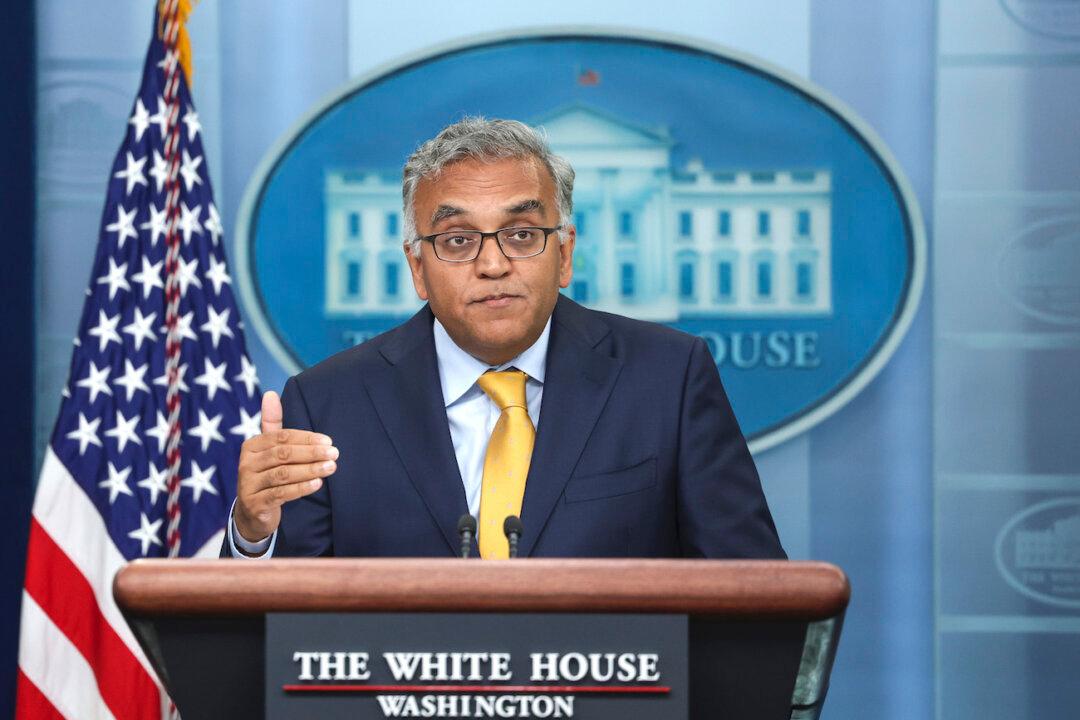The White House said it expects its COVID-19 vaccination rollout for children under 5 years of age to start on June 21, in the event of a swift approval from the U.S. Food and Drug Administration (FDA).
Ashish Jha, the White House COVID-19 response coordinator, on Thursday walked reporters through a hypothetical timeline of how things may play out within the next month regarding the vaccines for the young cohort, but pointed out he is not there to “pre-judge” the outcome of the vaccine vetting process.




